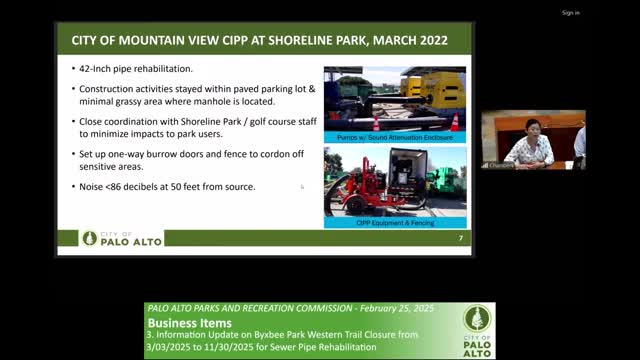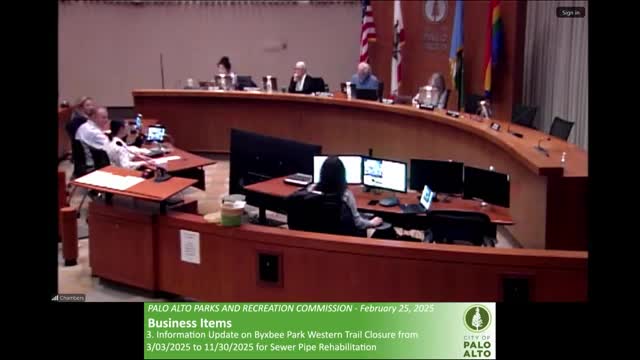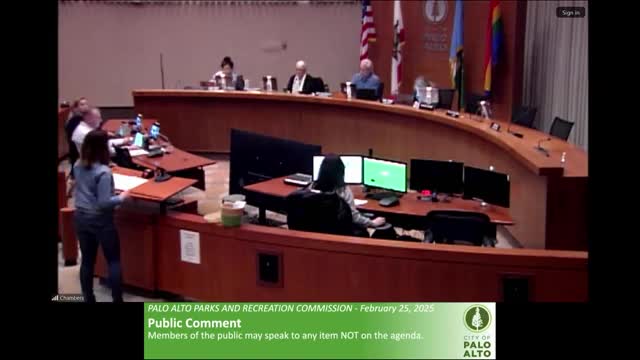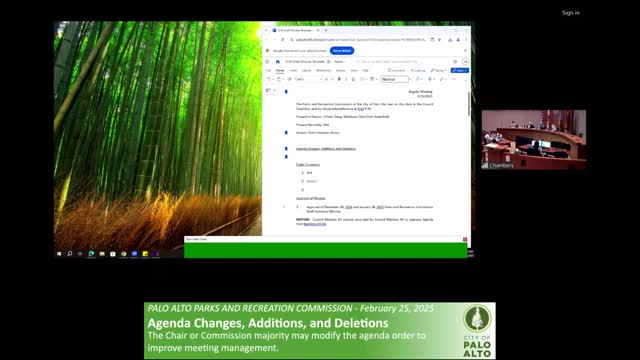Article not found
This article is no longer available. But don't worry—we've gathered other articles that discuss the same topic.

Canopy, city urban forestry present planting progress and draft Tree & Landscape Technical Manual; public seeks stronger native-species and biodiversity focus

City outlines Bixby Park sewer rehab plan; trail detours and night pump operations planned during spring–fall construction

Public raises concerns over Eleanor Pardee Park restroom survey; staff to return with action item

